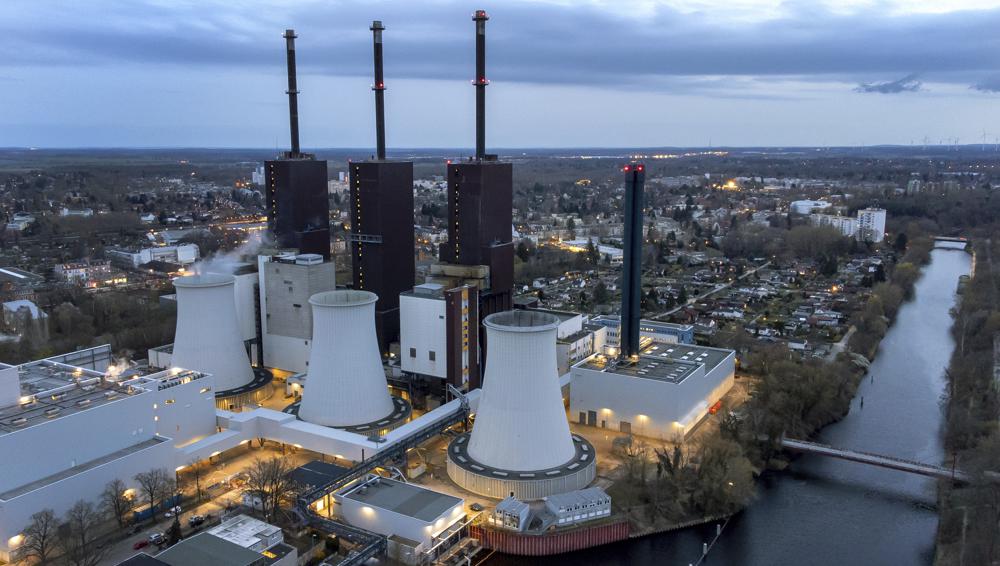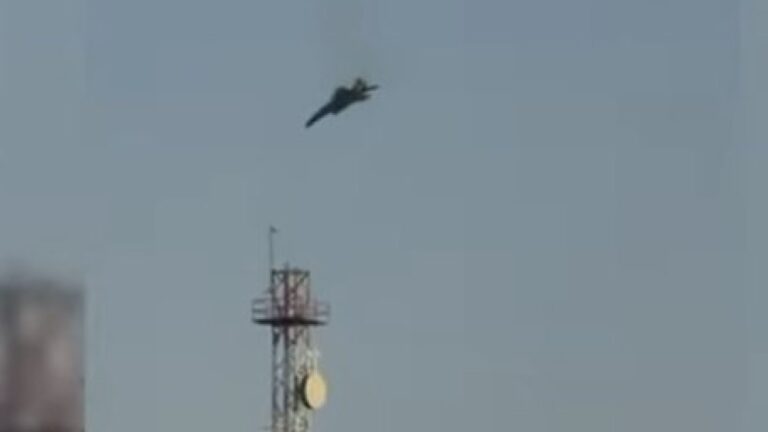Russian President Vladimir Putin is demanding payment in rubles for natural gas — or else. Germany is talking about gas rationing in case of a cutoff. Prices for the fuel used to heat homes, generate electricity and power industry are through the roof.
There’s a lot of discussion around natural gas in Europe against the background of Russia’s invasion of Ukraine, to say the least.
Here are key things to know:
WHAT IS PUTIN PROPOSING?
Putin has said importers of Russian gas must now pay in rubles. European leaders said no dice — the contracts say euros or dollars and one side can’t abruptly change that.
Changing currency would normally follow extended negotiations, analysts say, with customers demanding something in return for being exposed to fluctuations that would come with paying in the less-stable ruble.
The open questions about what the change could mean have sent shudders through energy markets, raising uncertainty about whether Europe’s natural gas could be cut off and cause a major hit to the economy. But Russia also relies on oil and sales to fund its government as sanctions have squeezed its financial system.
The Kremlin offered what could be seen as a loophole. Importers would simply have to establish an account in dollars or euros at a designated bank, then a second account in rubles. The importer would pay the gas bill in euros or dollars and direct the bank to exchange the money for rubles.
In any case, Kremlin spokesman Dmitry Peskov said Friday that the change won’t happen immediately: “Payments on shipments in progress right now must be made not this very day, but somewhere in late April, or even early May.”
European leaders have rejected the proposal as “blackmail” and say payments will continue in dollars and euros.
German officials wouldn’t discuss the impact of Putin’s decree other than to say they were examining it. Economy Ministry spokeswoman Beate Baron noted that Russia’s Gazprombank has been given 10 days to explain the procedure, “and of course we will in turn look carefully at that.”
A top European Commission energy official tweeted that the European Union was coordinating “to establish a common approach.”
WHAT IS PUTIN AFTER?
The Kremlin says the change is necessary because Western sanctions have frozen its reserves of foreign currency. Because the measure targets importers in “unfriendly countries,” it can be seen as retaliation for the sanctions that have cut many Russian banks off from international financial transactions and led some Western companies to abandon their businesses in Russia.
The economic advantages for Russia aren’t clear. In theory, payment in rubles would increase demand for the currency and help the Kremlin prop up its exchange rate, which has regained ground from its initial plunge after the invasion. But gas exporter Gazprom already has to sell 80% of its foreign earnings for rubles, so the boost to the currency could be minimal.
The Kremlin indicates it also wants to extend ruble payments to other commodities, such as metals.
One motive may be political, said Stefan Meister, head of the program on international order and democracy at the German Council on Foreign Relations.
“Russia is not interested in stopping gas, but it wants a kind of political victory,” Meister said. “It wants to show that Putin dictates the conditions under which it exports gas.”
The move is partly aimed at Russia’s domestic audience, Meister said, with Putin telling his people: “Look, these are enemy states and now they have to pay under a different scheme.”
“So I think that this is also about getting support inside the country, defining who are the enemies,” Meister said.
Another motive could be to protect the designated bank, Gazprombank, from being hit by sanctions because it would be the conduit for the payments that keep gas flowing, Meister said. It is the third-largest bank in Russia, and like Sberbank, the largest, it has not been cut off from the international SWIFT payment system.
WHAT’S THE STATE OF GAS SUPPLY TO EUROPE?
Coordinated U.S. and European Union sanctions exempt payments for oil and gas. That is a White House concession to European allies who are much more dependent on energy from Russia, which provides 40% of Europe’s gas and 25% of its oil.
Gas continued to flow Friday into the European pipeline system from Russia, according to pipeline operators’ websites.
Many aren’t happy that European utilities are still buying energy from Russia, which on average got 43% of its annual government revenue from oil and gas sales between 2011 and 2020, according to the U.S. Energy Information Administration.
That helped pay for the tanks and missiles used in the invasion. But it also means Russia has strong reasons not to cut off natural gas.
COULD EUROPE SURVIVE A GAS CUTOFF?
Europe’s economy would struggle without Russian gas, although the impact would vary based on how much countries use.
Germany, the continent’s largest economy, “is heavily dependent on Russian energy supplies,” said Monika Schnitzer, professor of economics at the University of Munich and member of the country’s government-appointed council of economic experts.
“A suspension of these supplies entails the risk that the German economy slides into a recession with significantly higher inflation rates,” she said.
Inflation is already at record highs, making everything from groceries to raw materials more expensive. It’s driven by soaring energy prices, with Europe facing an energy crunch even before the war broke out.
The crisis has left governments and companies scrambling to round up supplies from other sources, but it would not be enough to cover what’s used now if Russian gas suddenly stopped.
The Bruegel think tank estimated that Europe would be 10% to 15% short of normal demand to get through the next winter heating season, meaning exceptional measures would have to be taken to reduce gas use.
European leaders have said they can’t afford the consequences of an immediate boycott. Instead, they plan to reduce Russian gas use as fast as possible. They’re ordering more liquefied natural gas, which comes by ship; seeking more gas from pipelines from Norway and Azerbaijan; accelerating deployment of wind and solar energy; and pushing conservation measures.
The aim is to cut use of Russian gas by two-thirds by the end of the year and completely by 2027.
The situation is serious enough that Germany has declared an early warning of an energy emergency, the first of three stages.
In a full-blown emergency, government regulators must decide which companies would have their gas shut off to spare homes and hospitals. Makers of chemicals, glass, ceramics and galvanized metals use lots of gas.
Rationing would hit a European economy already suffering from the fallout from the war and high energy prices that have boosted inflation to a record 7.5%.
(AP)











